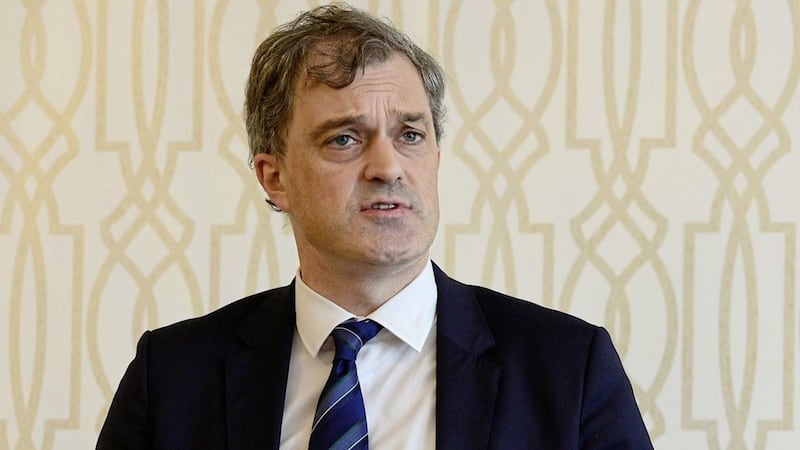It has taken almost three years without devolution for the consequences of no government to become visible in real terms.
The crisis in the health service did not happen overnight, nor is it even solely down to the last three years with no minister pushing through much needed reforms.
This crisis started way before then, but has been greatly exacerbated by the neglect experienced during this period. We are left with permanent secretary Richard Pengelly holding a crumbling fort, one now ready to completely collapse.
Mr Pengelly’s department insists that civil servants cannot overturn previous ministerial decisions.
However, my colleague, Irish News health correspondent Seanin Graham, this week quoted a spokesperson from the influential Institute for Government who said civil servants can exercise the functions of their department in the absence of a ministers, “as long as it is in the public interest to do so".
Given the current crisis in the NHS, which we have been told in at the point of collapse, it seems that criteria was met quite some time ago.
With just a week until the general election politicians from all parties will be telling you what a ‘great response’ they are getting at the doors.
That this is an election about Brexit and that’s what the voters are interested in and talking about.
But that’s far from the case. Regardless of what politicians say, they cannot spin the fact that the public are concerned about the crisis in the NHS at a time of the year when the young, sick and elderly are already at high risk.
And not just concerned, they want to know what is going to be done about it.
Anyone who has had cause to visit a hospital recently will have sympathy for the workers on industrial action to bring their pay into line with their counterparts across the water.
That trained, professional staff doing vital jobs are being paid shamefully low wages, many having to rely on foodbanks to supplement their income, should redden the faces of those responsible.
The secretary of state Julian Smith has been a different kind of British minister than the ones we had become wearily accustomed to.
More hands on, outspoken, not afraid to speak out against Boris Johnson’s decisions.
He moved mountains to ensure historic abuse legislation was passed through parliament at breakneck speed, something the two secretaries of state who came before him failed to do.
And for that he deserves credit.
He has said that following next week’s general election, he wants to reconvene talks to restore Stormont immediately.
That is assuming the current Tory administration will return with a credible majority and he’ll still be in post.
Even if Boris Johnson is returned – and that’s far from certain as the polls show growing Labour support – will he keep Mr Smith, a Remainer unpopular with the rest of the cabinet, in place?
There’s a lot of variables at play here but let's assume that Mr Smith is in post and does reconvene talks.
Do the local parties have the will to restore devolution?
And without radical reforms of the functions of government, which failed so badly during the last period of devolved administration, is it even worth restoring?
We have a much more politicised electorate, one that took a huge interest in the RHI scandal and inquiry.
I know because people talk to me in the street, shops, taxis and bars that there is a much greater understanding of the failings of Stormont than many politicians give the electorate credit for.
This is an unusual election, one like no other and one that we’ll probably never see the like of again.
The outcome, if there are a few upsets along the way, might just focus minds.
It may well get the parties in the mood to compromise and make a deal.
But right now, as we head into the final days of what has been a toxic and divisive election, it’s hard to see where the common ground can be found.








